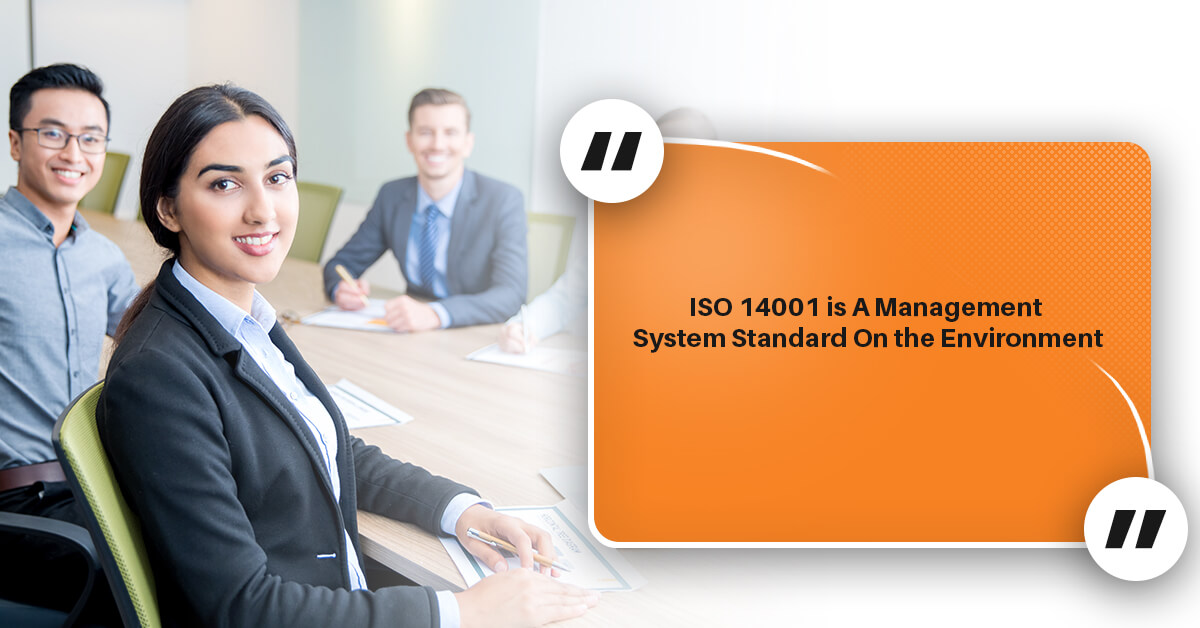ISO 14001 is A Management System Standard On the Environment

ISO 14001 – We Find that Most Organizations Are Quite Interested in Their Impact on the Environment and for Good Reason:
- Let’s face it, we live in our environment, we naturally to want to preserve it
- Using resources impacts the environment, and resources cost money
- Our impact on the environment affects others, including employees. Significant and needless impact on the environment can lead to loss of reputation, sales, and reduced employee motivation.
Of course, there are other reasons why environmental management and ISO 14001 is being adopted by an ever-increasing number of organizations but I just wanted to focus on the above areas for the purpose of this blog.
Preserving our environment:
We would be ignorant if we could not see that what we do and what we allow to happen in the environment affects our life and the possibly the lives of future generations. So it is quite natural to be concerned about the environment, even if only for our own benefit.
There is a natural beauty in the world and when tainted by pollution many of us feel compromised to say the least.
ISO 14001, the international standard for environmental management systems, provides organizations with the tools for being a good citizen, a good neighbor.
By implementing ISO 14001 environmental management systems, an organization identifies its impact on the environment and minimizes its impact.
By becoming certified to ISO 14001, not only does the organization minimize its impact on the environment, but it also receives recognition for it.
From a business standpoint, many are finding that clients and potential clients are also concerned about the environment, and ISO 14001 certification is just the ticket for demonstrating to clients a commitment to the environment in which we live.
Resource use costs money:
I was once visiting an organization for ISO 14001 certification. I walked into a room built for their air compressor. There was an oil leak and the oil trail was leading to the storm water drain.
The incident provided me with an opportunity to ponder other impacts, beyond the environmental impact. One thought I had was on the financial impact of losing resources down the drain. Almost all resources cost money.
Just a side note, when you are preparing for your ISO 14001 certification audit, before the auditor gets there, take a walk around your premises and look at your premises through the eyes of an auditor. If there are any leaks, dripping taps, ground contamination, etc., these should be rectified.
Often you will not fail your audit as the ISO 14001 audit is more about your management system rather than the amount of incidents observed, however, it is not a good look and it can look like you do not care and / or have a poor ISO management system.
While I was consulting with another organization after this experience, I had an epiphany of sorts. It was with a supplier of hoses and fittings to mine sites. We were talking about strategies to minimize electricity use in his warehouses when we realized that not only were his lights consuming natural resources, they were also costing a lot of money.
It was then that I realized that the work and resources it takes to generate money normally impacts the environment (no huge discovery there), therefore using more money impacts the environment even more.
Looking at money loss as an environmental impact caught the imagination of the CEO, and all of a sudden, saving electricity became more serious to the CEO. Good, solid objectives were set, and strategies to minimize electricity use came quite naturally when viewed from an environmental impact perspective.
Our impact on the environment affects others:
While auditing a printing company for ISO 14001 environmental management systems, I was introduced to a contraption costing around $3000, which turned used plastic ink bottles into a confetti of sorts.
Did the organization purchase this technology because it helped to significantly reduce the cost of waste cartage? Did they do it so that the plastic could easily be reused?
Actually, both of these benefits were realized; however, the main reason for investing in this contraption was that the employees’ motivation was being affected by seeing truckloads of ink cartridges being delivered to the landfill.
One employee we met was excited to demonstrate the new technology; he no longer felt compromised and went on to tell how he now enjoys the fact that waste cartage has been reduced significantly, which also means fewer trucks on the road.
Conclusion:
ISO 14001 environmental management certification is not simply about recognition. Minimizing our impact on the environment saves money and even helps to motivate employees. It is quite a natural thing for each of us to consider our impact on the environment, because the environment we live in in turn impacts us and future generations.


